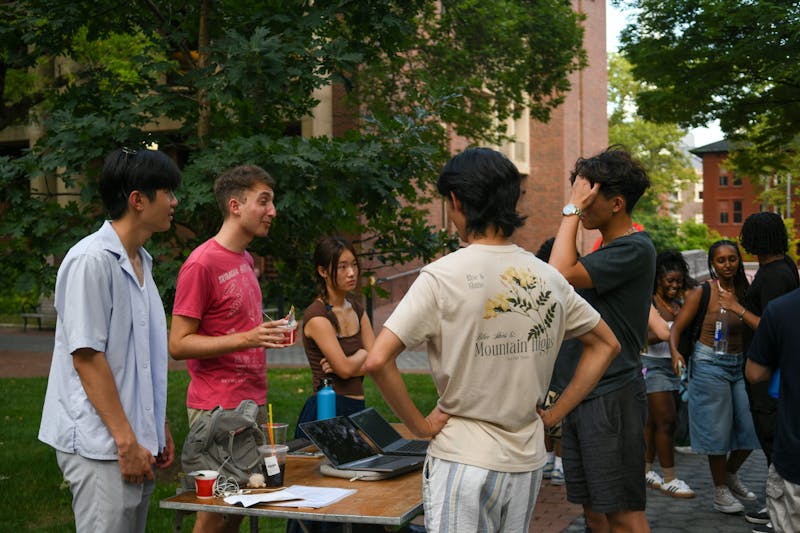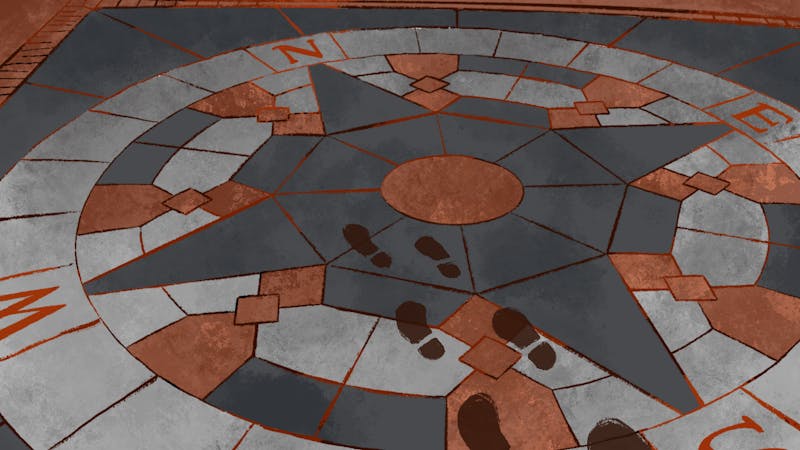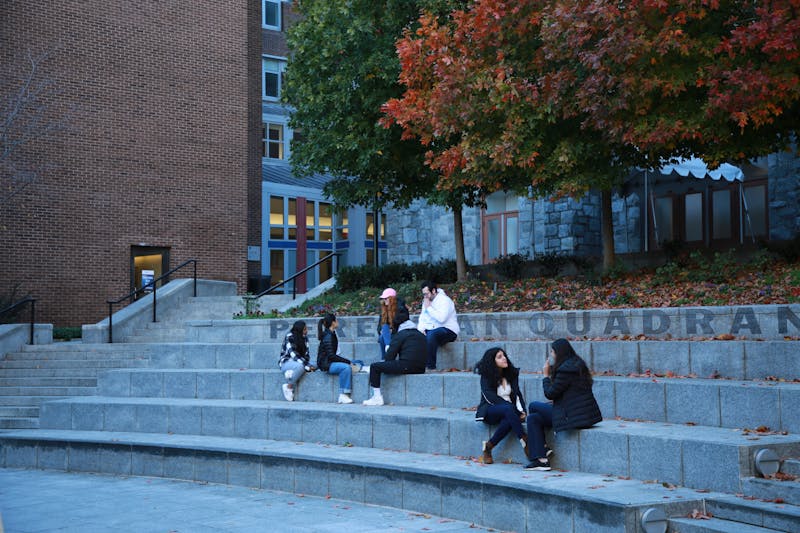
Columnist Francesco Salamone challenges the illusion of a self-made "I."
Credit: Ana GlassmanWho do you think you are? No, seriously. I do not mean your hometown and major elevator pitch or your icebreaker fun fact; I mean, who is living your life? You assume there is a coherent and integral self pulling all the strings, but is that true? Sure, you “chose” Penn or Goldman or to attend medical school. But what about the myriad subtle influences, parental advice, and cultural norms? We may have free will, but when will we stop dismissing the congenital fabric of life? Let me explain.
At Penn, you are your achievements, and your self-worth is supposedly contingent on the daily display of those achievements. Firm handshakes, shoulders back, fancy outfits, freshly polished resumes, bogus smiles. Self-curation culture coincides with performance culture. Every class, club, event, fair, and interaction requires you to introduce yourself, accustoming you to the relentless pursuit of likability. I am sick of introducing myself because I am incessantly reaffirming my identity: “I,” “I,” and “I.”
What I am trying to get at is that the more we present our “self,” the more entrenched we become in the illusion that “I” is a compartmentalized and self-made entity. We assume that we are the authors of a linear step-by-step life script. We get so lost in the obsession of our path that we wear tunnel-vision goggles and forget how many decisions have in fact already been made for us.
I am genetically made of other people. I write in a language I did not create with rules I did not invent and that I was not self-taught, although our combination of words can also give birth to a unique voice (as I strive to do). I am a kaleidoscopic mosaic of all the books I have read, movies I have watched, classes I have taken, people I have met, conversations I have enjoyed, and places I have visited.
My combination of those elements may be unique (I may be the only Sicilian who got a scholarship to Penn and joined The Daily Pennsylvanian) but there is not a single element uniquely mine, in that each individual piece of experience residing in my mind resides in someone else’s too. Even my articles are nothing original. I am fundamentally a consumer of already existing knowledge which I like to process, feel intensely, package, and pitch to you (I am in the Wharton School, after all) to create dialogue.
Here is a liberating truth, if a tad unsettling: You are not unique. Your thoughts are an ineffable mixture of ideas you did not creatively think up. Anything from your favorite expressions to your deepest convictions is borrowed from the world around you. However, that need not be an exasperating ignominious failure, but rather an indispensable reminder that you — excuse me, we — are simply a part of something larger. As my mentor and Religious Studies professor Justin McDaniel (from whom I recycle most of my ideas) would say, we just “recombine the circulating economies of knowledge in unique ways.”
Of course, I do not believe for a second we are doomed to a predetermined life of passivity. Quite the opposite. When you let go of the illusion of being a singular, exceptional “I,” you free yourself to embrace a life of delightful contradictions. Why not see your obligations in life as opportunities for spontaneity and absurdity? Why not laugh at the futility of trying to control life and instead focus on being a delightful, imperfect, work in progress?
The truth is, I am petrified at how many Penn students are desperately trying to prove that they are extraordinary. It is not stupid, and it is certainly not their fault, but it is saddening. The world does not need more extraordinary heroes. The world needs those who can find the marvel of an ordinary life, who can “make the ordinary come alive,” as poet William Martin assures us. Trust us. If you do that, the extraordinary will take care of itself.
Perhaps I am looking at life upside down, but at least for now, I am fine being an absolute nobody. What I truly seek is a displacement of identity to unravel my mind. I do not want to be someone just to be someone. So the next time you come talk to me about yourself starting a sentence with “I,” I hope you will not be surprised if I ask you: Who is this “I,” really?
FRANCESCO SALAMONE is a Wharton junior studying decision processes from Palermo, Italy. His email address is frasala@wharton.upenn.edu.
The Daily Pennsylvanian is an independent, student-run newspaper. Please consider making a donation to support the coverage that shapes the University. Your generosity ensures a future of strong journalism at Penn.
Donate












